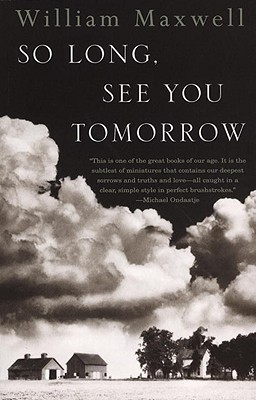APS TOGETHER
Day 6
Chapter 7
October 20, 2020 by Aimee Bender
From writer/editor Daniel Menaker on the book: “The writing is as clear and sharp as grain alcohol. Mr. Maxwell once said that he consciously tried to achieve this clarity…
…by taking an idea or an event or a visual image and putting a layer of words over it that were as "transparent" as possible. And that is the sensation that many readers have had in reading this novel--as if there were no words at all, in a way.”
Chapter Seven is a kind of slow revving up; we’re staying with the townsfolk, spending time, lingering in details. Possibly a kind of held breath? Which side characters stand out the most to you?
Masterful barbershop scene: Poster (sight), clock (sound), textural world of the hair on the floor (“a minute before, they were part of Cletus Smith”); then, a shadow!...
…Barber speaks to Clarence (who we didn’t even know was there), barber POV, Cletus listens, evidence of friendship falling apart, boy blushing. SO much work done with intimate unconventional immediacy.
Marie calls out Lloyd’s passivity—“And that makes it more comfortable for both of you, I’m sure. But don’t ask me to believe it too.” Strikes me as important, since much of the book is also about what we can’t control.
Another echo of a mother gone, this house full of boys… “after that, he let them cry themselves to sleep, hoping they’d get over it sooner.” Maxwell gives the children dignity over and over again by describing their experience without flinching.
“The dust that blew into the house from the plowed fields…”; setting so bound to human experience that the landscape (both weather and farm) is palpably inside the house.
The objects continue to participate and reflect truth: “the oval photograph, adapting itself to circumstances, is now clearly the photograph of a dead man.”
Cletus shows a moment of insight into both parents while milking cows, met by a blow from his dad; we see how his words have no room, and also how Clarence is becoming increasingly unhinged.
Once again, a chapter ends on characters who are less central, the widow’s wondering about Mrs. Stroud, which fills in world, and allows a pause as we take a breath and look away before the emotional anvil drop of Chapter 8.
